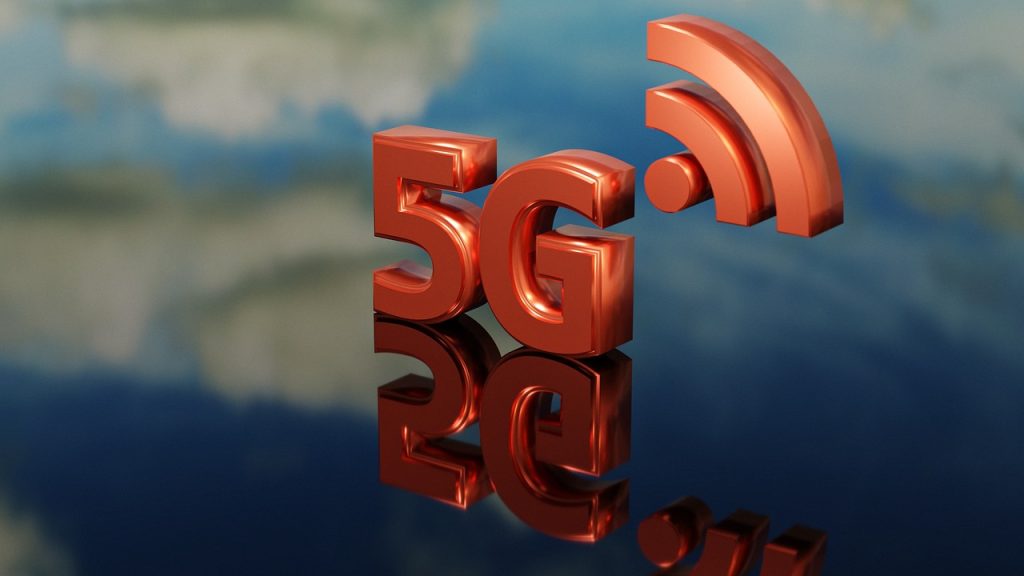How fast is 5G internet? Faster than you can imagine. If you are looking for new internet service, it’s time to think about 5G internet. The first 5G networks are being installed right now. This means that the next generation of high-speed internet will be coming soon. Maybe even to your area! Read on to learn more about how fast 5G internet is. Plus what you need to know before switching over from your current connection.

About 5G Internet
If you’re not familiar with 5G internet, it stands for the fifth generation. While most providers only refer to a new internet connection as just 5G. Two types of relationships fall under that umbrella. One type is commonly referred to as accurate 5G, which will likely be in place by 2020. The other is referred to as 5-generation LTE or LTE Advanced Pro. This type of connection operates on fourth-generation (4G) technology. Still, it has a maximum speed of 10 Gigabits per second.
Which means it can move data much faster than your average internet connection. That sounds pretty fast already, right. Well, they claim 5G will be more than 1,000 times faster than our current 4G speeds. And many predict we could see rates greater than 1 Gbps per second when it finally goes into full effect. To put that into perspective—with our current cellular infrastructure.
It would take 15 minutes to download an entire season of Friends from Netflix. Not anymore. An early study released by Ericsson claims that once these networks go live. You could theoretically download 100 movies in one minute. Imagine how crazy movie nights would get if no one had to wait. Their turn because everyone could watch whatever they wanted at the same time. I’m getting goosebumps thinking about it.
What can I do with 5G?
Let’s start with some basics. A 5G network will allow users to download data faster than currently possible on a 4G network. While each network has different maximum theoretical speeds. Real-world performance can vary due to any number of factors. Including your location, nearby cell towers, and how many people are using that particular tower at that time.
Speed
Here’s how fast your future internet connection will be. If your phone could download an HD movie in one minute. It would take five seconds with current 4G LTE networks. With each successive generation of mobile data technology, speeds have increased at a rate of around 100 Mbps per year. That means it took 2 years to go from 3G (HSPA+) to 4G LTE and just another two years from 4G LTE to 5G. So it stands to reason that with speeds estimated at around 1 Gbps. Rates could triple within a decade and perhaps double again within 15 years. You can do tm speed test of your 5G internet connection to check your upload and download speed.
You will be able to use your phone on it
Most of us assume that we’ll be able to use our current phones and devices on our 5G networks—essential things to note. First, as Verizon previously stated, you can expect your phone (iPhone) will not be compatible with its network until 2022. Second, Qualcomm has already indicated their X50 modem. Which allows mobile phones and other devices to access 5G speeds over 4G networks. Will not be ready for deployment.
And finally, T-Mobile says it will be rolling out 5G services in 2020 (although no one expects service before 2021). It has also stated that customers won’t see these services on their phones. Instead, these early adopters will have specialized new modems built into computers. And routers so people won’t notice any difference in how they experience 5G or even 4G LTE today.
Cost
The biggest challenge at present is costs. The equipment required to run a commercial network using 5G technology can easily cost hundreds of thousands of dollars per cell site. This means that just installing a single one could set operators back millions. Over time, those expenses will fall as technology improves and economies of scale start kicking in. You can check current Unifi internet plans here.
But it’s not likely that we’ll see them drop precipitously any time soon. At least at first, AT&T doesn’t expect business customers to take advantage. Its new service pays less than $1 million per month for access (and home users will probably end up paying more). Businesses and consumers alike—at least for now.
How does this relate to FTTP, FTTN, VDSL2/ADSL2+
Technically, it doesn’t. But, fast internet can be accomplished through several different technological methods. And it’s not always easy for us, as consumers. Keep up with exactly what’s happening and why. Our goal is to provide our readers with an overview of how. These things work to have a solid basis for making educated decisions regarding their networks.
The purpose of our post isn’t to tell you which technology will be better or worse. But rather it’s an attempt at understanding. So that you can give people clear answers when asked about high-speed internet options in Australia.
